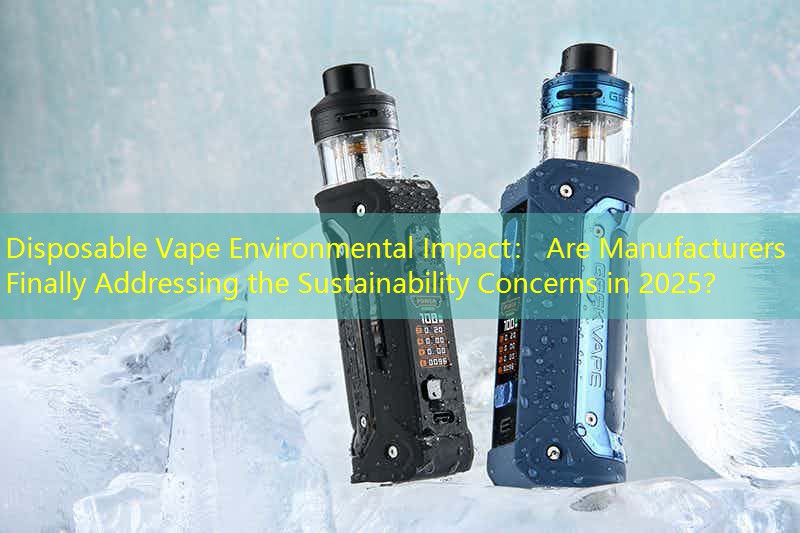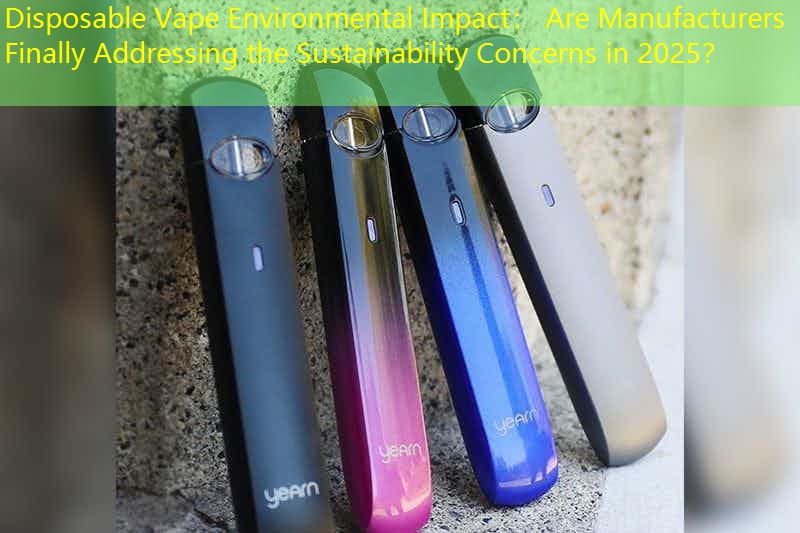Impacte ambiental del vape d’un sol ús: Els fabricants aborden finalment els problemes de sostenibilitat? 2025?

El mercat dels vapors d'un sol ús ha experimentat un creixement exponencial durant els últims anys, però també ha atret un escrutini important pel que fa al seu impacte ambiental. A mesura que entrem 2025, el panorama del sector està evolucionant, amb els fabricants que comencen a prioritzar la sostenibilitat. Aquest article examina els últims productes de vaporització d'un sol ús, les seves característiques, Experiències dels usuaris, anàlisi competitiva, Pros i contres, i la demografia objectiu.
Característiques del producte
Modern disposable vapes often boast several appealing features that enhance user satisfaction. Molts dispositius estan equipats amb tecnologia avançada, com ara potència ajustable, durada de la bateria millorada, i sistemes de flux d'aire millorats. En 2025, els fabricants es centren cada cop més en dissenys ecològics, utilitzant materials biodegradables per a envasos i ferreteria, and integrating recyclable battery systems. Some of the latest models also come with built-in safety features, such as short-circuit protection and overheat prevention.
Experiència d'ús
Users report a generally favorable experience with disposable vapes. Many find them convenient for on-the-go usage due to their compact size and ready-to-use nature. The flavor profiles offered are more diverse than ever, with brands providing everything from traditional tobacco to exotic tropical fruit flavors. No obstant això, the experience can be marred by issues such as inconsistent vapor production or reduced flavor intensity in lower-quality models. General, consumers appreciate the ease of use and the variety of options available.

Competitive Analysis
When comparing disposable vapes, key competitors are often distinguished by product quality, ofertes de sabors, and sustainability initiatives. Leading brands like Elf Bar and Puff Bar are innovating in both technology and eco-friendly practices. These brands have introduced models with refillable options, which are designed to reduce waste while still appealing to the disposable vape market. A més, their ability to balance quality with affordability keeps them competitive against emerging brands. No obstant això, some lesser-known brands continue to struggle with consistency and product reliability, which may deter more discerning consumers.
Pros i contres
The primary advantage of disposable vapes lies in their convenience and accessibility. They require no maintenance, can be used immediately, and are often more affordable than traditional vaping devices. Al desavantatge, the environmental impact of single-use products remains a concern. Many disposable vapes are made with plastic components that contribute to pollution. Addicalment, the batteries present a disposal challenge, emphasizing the need for brands to adopt better recycling practices.
Orientar la demografia dels usuaris
The primary users of disposable vapes tend to be younger adults, particularly those aged 18-34, who appreciate the novelty and ease of use. This demographic is often conscious of both flavor variety and product packaging. There’s also a growing segment of eco-conscious users who are increasingly seeking out sustainable alternatives within the disposable vape market. As manufacturers continue to innovate, they may appeal to a broader audience, including older smokers looking for a less harmful alternative to traditional cigarettes.
En conclusió, as we move further into 2025, it’s clear that the disposable vape industry is under pressure to address its environmental impact. While many manufacturers are making strides toward sustainability, the ongoing challenges of waste management and product lifecycle must be addressed to foster long-term responsibility in the market.







